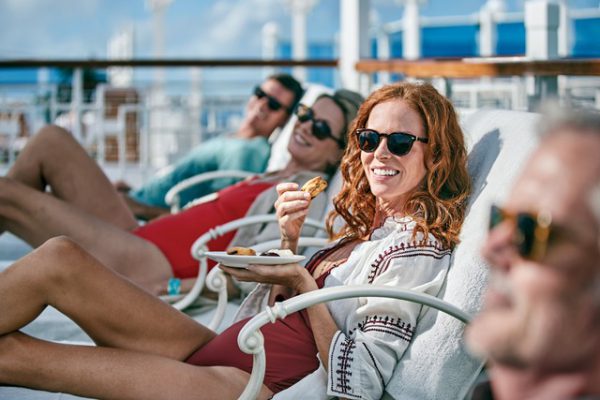Singapore 12 May 2022: Carnival Corporation, the world’s largest cruise company, has installed nearly 600 food waste biodigesters across its fleet in support of ongoing food waste management and reduction efforts as part of its overall commitment to environmental compliance.
The innovative technology has been added to ships from the company’s nine cruise line brands – Carnival Cruise Line, Princess Cruises, Holland America Line, Seabourn, P&O Cruises (Australia), Costa Cruises, AIDA Cruises, P&O Cruises (UK) and Cunard.
The biodigester technology uses a natural aerobic digestion process inside each machine to efficiently break down food waste using a mix of beneficial microorganisms, enabling the systems to process anything that can be consumed by a human.
Able to perform automated digestion 24 hours per day, the biodigesters are strategically placed in key areas of the ship where food is processed, further improving onboard operations by making it easier and more efficient for crew members to manage and control food waste. Additionally, the machines capture non-food items or other materials accidentally mixed with food waste, providing an additional layer of protection for environmental compliance on each ship.
Since first piloting the technology in 2019, Carnival Corporation and its nine global cruise line brands have continued to expand the use of these systems across its fleets. Most recently, the company’s namesake brand, Carnival Cruise Line, announced it is the first major cruise line to employ biodigesters across its entire fleet as the brand returns its final of 23 total ships to guest operations this month.
As Carnival Corporation’s entire fleet returns to operations this year, its full lineup of brands will continue to see benefits from improved food waste management as additional biodigesters come online, further strengthening environmental performance across the company’s global operations.
The fleetwide biodigester installation supports Carnival Corporation’s aggressive food waste management objectives in its 2030 sustainability goals. These goals support the company’s circular economy focus area by including a commitment to achieve a 30% reduction in unit food waste by 2022 and a 50% reduction in unit food waste by 2030, as outlined in the company’s latest sustainability report. These new goals build on the company’s latest achievement of reducing food waste per person by over 20% at the end of 2021, which doubled its original goal of reaching a 10% reduction in food waste by the end of last year, relative to a 2019 baseline.
In addition to food waste management objectives, the circular economy focus area also includes an ongoing commitment to significantly reduce non-essential single-use plastic items, along with long-term 2030 sustainability goals and 2050 aspirations detailed in the latest sustainability report, including the following:
- Increase fleetwide coverage of Advanced Waste Water Treatment Systems to over 75% by 2030
- Send a larger percentage of waste to waste-to-energy facilities where practical by 2030 and aspire to send 100% by 2050
- Partner with primary vendors to reduce upstream packaging volumes and aspire to partner with primary vendors to ensure near 100% reuse of packaging materials by 2050
- Aspire to build ships without the need to discharge to the ocean or air (zero-emission ships) by 2050
As part of its longer-term sustainability plan and vision, Carnival Corporation has committed to significant investments to achieve its 2030 sustainability goals and 2050 aspirations, which incorporate six critical sustainability focus areas overall, including climate action; circular economy; sustainable tourism; good health and well-being; diversity, equity and inclusion; and biodiversity and conservation. Among these priorities, the company and its brands have committed to reducing carbon emission intensity by 40% by 2030 and have aspirations to achieve net carbon-neutral ship operations, supporting its efforts to establish a path to zero-emission cruising by 2050.








